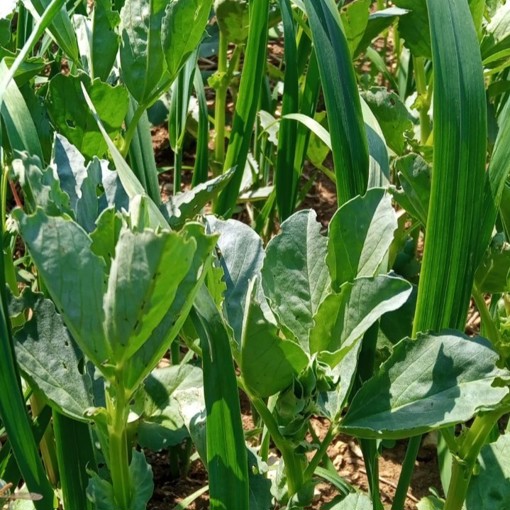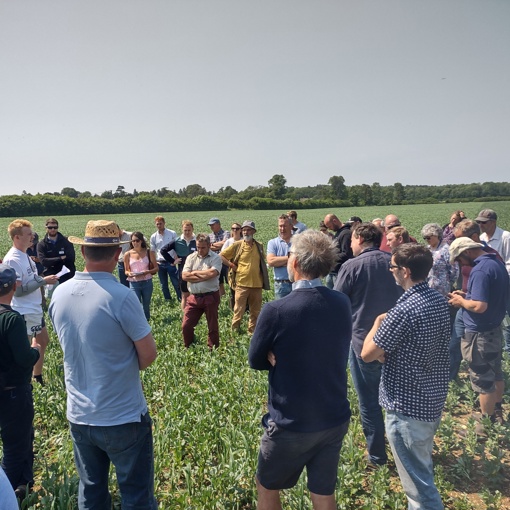An opportunity to join an international study into intercropping
LEGUMINOSE is a pan European project looking at legume-cereal intercropping - an agricultural technique where legume crops are planted alongside cereal crops in the same field. Intercropping can increase yields and reduce weeds but is still a relatively niche practice. Here in the UK, Soil Association and University of Reading are leading on an Innovative Farmers’ field lab to feed into the project.
Collaborating to overcome the barriers of using intercropping
In the UK we’re inviting farmers to take part in the LEGUMINOSE project by joining the field lab and planting a trial plot in spring 2024. The evidence each farmer discovers will then feed into research from nine other countries to provide farmers with practical information related to implementing intercropping, helping more farmers to get involved. As well as trialling, LEGUMINOSE is also working with farmers and stakeholders to identify barriers and opportunities to uptake with separation and marketing of the crops important areas to investigate.
Initial results show intercropping means higher net yields
Results back from an early UK triallist who planted in 2023 showed interesting results. The evidence from this trial plot showed the intercropped mixes giving an increase in net yield, and also increases in protein level in the wheat indicating that there is a synergy between both species. Anecdotal evidence also showed lower weed levels in the intercrop.
The trial plot was planted in April 2023 as part of a whole field of intercropped beans and wheat and harvested in August. Although not organic, the plot was not treated with any herbicides or fungicides due to the requirements of the contracted purchaser. The wheat was a 3-way blend of varieties, and the beans were Lynx. Drilling rate was based around 60% of normal farm seed rate, with the same rate for the trial area.
The intercropped area produced 6.5% more total yield than the control wheat plot, intercrop wheat yield was 86% of the control and intercrop bean yield was 30% of the control. Wheat quality also improved with NIR protein levels up from 11.43 to 11.88.
Get involved in the research
We’re looking for more UK farmers to take part in the trial this spring – participating farmers will get research support to build practical data insights into intercropping on their farms - for more information contact Jerry Alford on info@innovativefarmers.org

